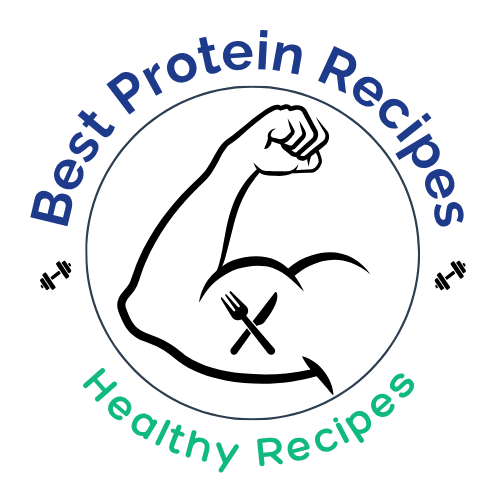Protein goes way beyond being a buzzword in sports nutrition; it’s one of the most important nutrients for athletes. Whether you’re training for a marathon or working out at the gym, understanding the role of protein helps take your performance and recovery to the next level.
If you’ve been wondering why protein is crucial for athletes or what makes protein essential for athletes to stand out from the average person, you’re in the right place.

Why Protein Matters for Athletes
The value of protein for athletes primarily comes down to three basics: building, repairing, and maintaining muscle tissue. Physical activity, when it’s intense or lasts a long time, creates tiny tears in your muscle fibers. Your muscles become stronger as they repair, and this is where protein plays a crucial role. If you skimp on protein, your muscles won’t recover properly; this means more soreness, loss of strength, and missed opportunities for growth.
Science backs this up. According to the Journal of the International Society of Sports Nutrition, athletes typically require more protein than non-athletes due to the additional muscle breakdown and tissue remodeling caused by regular intense exercise.
There’s more to the story. When athletes consume sufficient protein in their diets, they can manage exercise-induced muscle damage more efficiently, experience fewer injuries, and adapt better to rigorous training programs in sports ranging from weightlifting to running to swimming.
The Role of Protein in Athletic Performance
A key point in the conversation on “why athletes need protein” is its impact on performance. Protein supports practically every aspect of athletic growth, and it does more than help muscles recover after a workout.
Here’s a breakdown:
- Muscle repair and growth: Whenever you challenge your body physically, protein helps patch up your muscles and, over time, build bigger and stronger ones.
- Immune function: Protein supports immunity, keeping you healthy and in the game.
- Sustained energy: Athletes burn a lot of calories, and protein can help provide a small but steady energy source, especially for endurance sports.
- Making new enzymes and hormones: These little chemical messengers keep everything running smoothly in your body, from metabolism to mood. Protein makes up key parts of these systems.
Another lesser-known benefit is that adequate protein helps minimize the risk of musculoskeletal injuries and supports the healing process if you do get hurt during athletics or even casual exercise.
There’s also the practical side. Protein for muscle recovery makes a significant difference for individuals participating in back-to-back training sessions or longer competitions. It shortens recovery time and gets you up for your next challenge quicker, allowing you to train harder and achieve better results over the long run.
Bonus Tip: Pairing protein with carbohydrates post-workout can help replenish glycogen stores and maximize muscle repair. A 3:1 or 4:1 carb-to-protein ratio is often recommended by sports dietitians for endurance athletes.
How Much Protein Do Athletes Actually Need?
One common question is how much protein does an athlete need versus a nonathlete? For most adults, the daily minimum is roughly 0.8g of protein per kilogram of body weight (about 0.36g per pound). However, protein intake in athletes can range from 1.2g to 2.0g per kilogram (approximately 0.54g to 0.91g per pound) or even slightly more for certain sports or during intense training blocks, according to current sports nutrition guidelines.
Here’s how to simplify it:
- Light/moderate exercise (adults): 1.0–1.2g/kg/day → approximately 0.45–0.55g/lb/day
- Endurance athletes: 1.2–1.6g/kg/day → approximately 0.55–0.73g/lb/day
- Strength/power athletes: 1.4–2.0g/kg/day → approximately 0.64–0.91g/lb/day
Therefore, someone weighing 68 kg (150 pounds) might require approximately 95–136g of protein per day if they’re training intensely, exceeding the standard dietary guidelines for the general population.
These needs increase for adolescent athletes, people trying to lose fat while maintaining muscle, or those recovering from injury.
Remember, protein requirements may temporarily increase during periods of increased activity or when aiming for significant muscle gains. It’s smart to tune in to your own body and adjust your intake based on how you feel during training and recovery.
Types of Proteins and How They Help Athletes
Not all proteins are the same—the quality and type of protein source matter for athlete nutrition. Animal-based proteins (like chicken, fish, eggs, and dairy) are considered “complete” proteins. They have all the essential amino acids in the right amounts for your muscles. Plant proteins (think beans, lentils, nuts, and seeds) are great, too, though some might need to be combined (like rice and beans) to get all the amino acids your body needs.
A key amino acid to mention here is leucine, which plays a powerful role in triggering muscle protein synthesis. It’s found in higher amounts in foods like whey protein, eggs, poultry, and dairy.
Some popular choices among athletes include:
- Lean meats and poultry
- Fish and seafood
- Eggs
- Dairy (milk, Greek yogurt, cheese)
- Soy (tofu, tempeh, edamame)
- Legumes (beans, lentils, chickpeas)
- Nuts and seeds
Supplement powders (such as whey, casein, or plant-based blends) are convenient if you’re short on time or prefer a quick solution, but food sources offer a wealth of natural vitamins and minerals. There’s also a psychological benefit; eating a meal feels more satisfying than just drinking your calories, and real food supports long-term health.
Timing Protein for Maximum Results
It’s not just about how much protein you eat but also when you eat it. To support recovery and muscle growth, aim to spread your protein intake throughout the day. Research suggests that consuming a moderate amount of protein every three to four hours is more effective than trying to pack it all into one or two meals.
Right after a workout is an especially good time for protein since your muscles are like sponges and ready to absorb nutrients. Most athletes I know reach for a snack or meal within an hour after finishing up. This could be a protein shake, Greek yogurt with fruit, or a turkey sandwich. Consistently timing protein around workouts leads to better results and, over time, can give you a competitive edge.
If you train more than once a day, split your protein into multiple meals or snacks to keep your body in recovery mode and to help prevent injuries from overuse.
Protein for Muscle Recovery
Protein for muscle recovery is the go-to reason many athletes pay attention to what they eat. Workouts, especially those that are intense or involve weightlifting, can cause small muscle breakdowns. Recovery is where you get stronger, and protein is what your muscles need to rebuild.
I’ve noticed I’m ready for my next workout much quicker when my post-exercise snack hits that 20-30g protein sweet spot. Science supports this; multiple studies have shown that protein consumption after exercise enhances muscle repair and growth.
Rest is also vital. Even with perfect nutrition, your muscles need downtime to heal. Pair protein with quality sleep for a winning combination that has you bouncing back stronger each day.
Common Protein Challenges for Athletes
Getting enough protein isn’t always smooth sailing. Here are some obstacles I’ve seen athletes bump into, plus tips for tackling them:
- Busy schedules: It’s easy to miss meals or skimp on protein if you’re on the move all day. Having portable options like protein bars, jerky, or trail mix is very helpful. Meal-prepping protein-rich foods for the week or packing simple snacks goes a long way. Stuff like hardboiled eggs, cottage cheese cups, or even string cheese slide easily into a lunch bag or backpack.
- Food preferences or restrictions: Vegan or vegetarian athletes can meet their protein needs, but it requires a bit more planning. Stocking up on beans, lentils, soy, nuts, and seeds or using a high-quality plant protein powder can make things easier. Combining plant proteins (think rice with beans or pita with hummus) ensures that you get all the amino acids your muscles need.
- Digestive issues: Some people can feel bloated if they consume a large, protein-packed meal or shake. Spreading protein out over the day can prevent that. If you’re having trouble tolerating dairy or certain protein supplements, sticking with gentle sources like eggs, chicken, or tofu or opting for lactose-free dairy can make a significant difference.
Protein and Real-World Athlete Success
I’ve seen firsthand how dialing in athlete nutrition protein makes an impact. Friends who train for distance races often feel less sore and bounce back quicker. Teammates who put in hours at the gym have been able to push their lifts further, session after session, simply by ensuring their protein intake was on point.
- Endurance sports: A higher protein intake helps with recovery and prevents athletes from hitting a physical wall. Cross-country runners, cyclists, and rowers benefit from a steady intake of protein every day.
- Strength sports: Building and maintaining muscle is the whole game, so protein is a top priority for lifters, sprinters, and gymnasts.
- Team sports: Quick turnarounds between practices and games mean recovery is everything; protein makes it happen faster.
Many professional and amateur athletes work with sports dietitians to fine-tune their protein intake for optimal results tailored to their unique body and sport.
Frequently Asked Questions
Here are some questions I hear a lot about protein and athletes:
Question: Is it possible to get too much protein?
Answer: Most active people don’t go overboard, but eating huge amounts isn’t necessary. The body can only utilize a certain amount of protein for muscle building and repair. Extra energy is usually just used or excreted. In rare situations, extremely high intakes for prolonged periods can stress the kidneys, but this is generally not a concern for healthy athletes.
Question: What are the best sources of protein for athletes?
Answer: Lean meats, dairy, fish, eggs, beans, and nuts all work great. Variety keeps meals interesting and helps cover your nutritional bases. Try to include a mix of both animal and plant sources for the best results and meal enjoyment.
Question: Should athletes use protein supplements?
Answer: Real food is always a solid foundation, but protein powders or bars are convenient and have their place. They’re not a necessity for everyone, but they can help fill gaps when life gets busy, recovery windows are short, or appetite is lower after intense exercise. Just watch ingredient lists for unwanted sugars or additives.
Takeaways for Athletes
Getting enough protein is crucial for any athlete seeking to enhance performance and maintain health. It’s all about building and maintaining muscle, supporting recovery, and maintaining steady energy, regardless of your sport. The key is to make protein a regular part of your diet, adjust it to your activity level, and choose sources that work for your lifestyle. Staying consistent with protein intake means you’re set to keep growing stronger and bouncing back from tough sessions with confidence, ready to set new goals and smash them as you progress on your athletic adventure.
Disclaimer:
The information provided in this article is for educational and informational purposes only and is not intended as medical or dietary advice. We are not doctors or registered dietitians. Always consult with a qualified healthcare provider, physician, or licensed nutrition professional before making any changes to your diet, exercise routine, or supplementation plan—especially if you have any medical conditions or specific health concerns.

